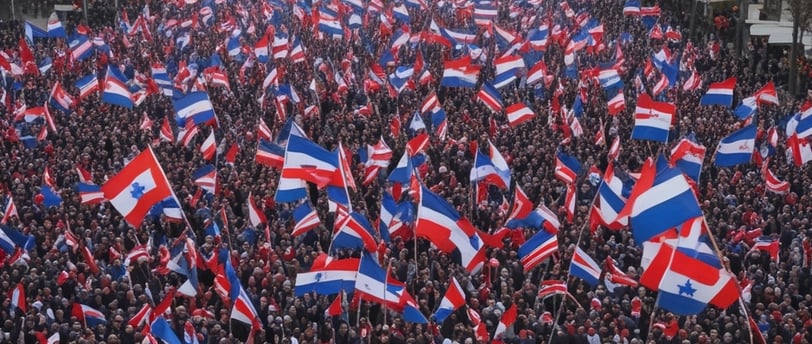Unraveling the Protests in Slovakia: A Response to Government Alignment with Russia
1/25/20252 min read


Introduction to the Protests in Slovakia
In recent weeks, Slovakia has witnessed mass protests, with citizens taking to the streets to express their discontent with the government led by Prime Minister Robert Fico. The catalyst for these demonstrations has been the government's perceived alignment with pro-Russian policies, a stance that many Slovakians find concerning amid global tensions.
The Context of Opposition
Prime Minister Fico's tenure has been defined by a series of decisions that many citizens believe prioritize relations with Russia over the interests and security of Slovakia. Various narratives have emerged underscoring the detrimental impact of such policies not only on Slovakia's democratic values but also on its standing within the European Union.
Protesters have articulated their fears regarding potential diplomatic isolation and the undermining of Slovakia's sovereignty. This backdrop has fueled a growing opposition movement that criticizes the government's actions, sparking a wave of solidarity among Slovaks who feel their voices aren't being heard.
The Nature and Scale of Demonstrations
The scale of the protests has been remarkable, with thousands of participants gathering in major cities like Bratislava and Košice. The gatherings have been marked by peaceful demonstrations, speeches from prominent opposition leaders, and displays of national pride, as citizens demand a reversal in the government's pro-Russian trajectory.
Social media has played an essential role in mobilizing these demonstrations, with activists utilizing various platforms to disseminate information and encourage participation. Signs bearing messages of solidarity and calls for a change in leadership have dominated the scenes, relating to widespread discontent over the current government's international alignments.
International Implications
The fallout from these protests has potential implications not just for Slovakia but for the broader European context. As one of the European Union's eastern members, Slovakia's political stance could influence regional dynamics, particularly concerning security and energy policies. The protests serve as a reminder of the challenges faced by governments in navigating complex foreign relations while attempting to maintain public support.
As the situation evolves, the government's response to the protests will be critically observed. There is a palpable urgency among Slovaks for dialogue and reform, as many citizens prioritize their national interests over foreign influences. The outcome of this confrontation could have lasting effects on Slovakia's domestic landscape and its relations within Europe.
Conclusion
The extensive protests in Slovakia against Prime Minister Fico's pro-Russian government underscore a significant moment in the nation's political narrative. As citizens continue to voice their grievances, it becomes increasingly clear that the quest for a government that reflects the people's will is paramount. The unfolding situation will undoubtedly be a focal point for both national and international watchers as challenges surrounding democracy and governance come to the forefront.
